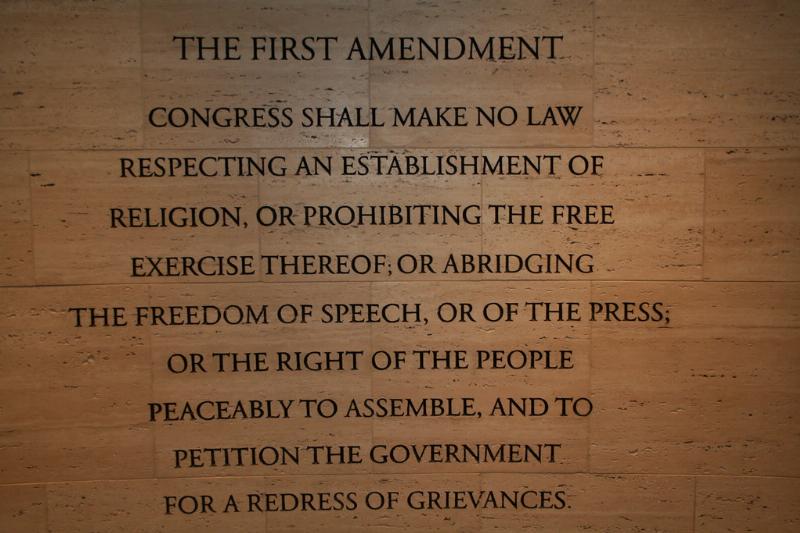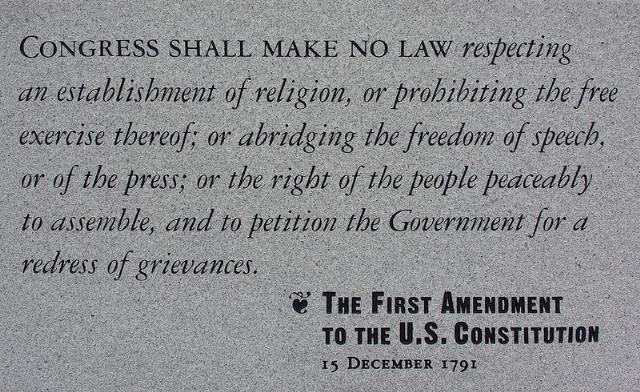


The written word, like all artistic endeavors, is a world of symbolism, some subtle, some right in your face. And big names in that world are certainly not immune to the criticism of their peers.
But a recent off-Broadway production targeting playwright David Mamet crossed a line when it portrayed the controversial man — who is very much alive — as the victim of an onstage killing and non-figurative emasculation.
Mamet’s plays have long been panned for the way he portrays female characters. That’s fair game. But is a brutal attack — too disgusting to fully describe here — on the writer of such popular plays as Glengarry Glenn Ross, American Buffalo, and Oleanna socially or constitutionally acceptable? That is to say, does it violate the exemptions to the right to free speech?
The hour-and-a-half-long play undeniably has artistic value, shock factor, and legitimate criticism. As a public figure, Mamet isn’t legally immune from public takedown. But the play’s portrayal of Mamet’s bludgeoning and dismemberment moments into the opening rings of fatwah, and opens a dangerous door toward violence on those with whom we disagree.
Should a production portray such actions against a large social group — i.e., illegal aliens or far-left college presidents — there would be howls that some viewers who didn’t get the art might interpret it as open season to take literal action against the script’s victims.
It’s a valid point, and all the more so when the victim is a specific individual.
A Play About David Mamet Writing About Harvey Weinstein by Mathilde Dratwa had a one-night off-Broadway reading last week. It’s a meta piece in which the playwright herself is a character or two in her own creative process of taking down the Pulitzer-winner. (Think the Charlie Kaufman-written film Adaptation sans permissions and input from the real-life people fictionalized in the work.)
The Mamet character in the play is more than Mamet, of course. He’s representative of the people and institutions that Dratwa sees as supporting his misogyny. It’s the opposite of the symbolism of the “Joltin’ Joe” Americana spirit of Simon and Garfunkel.
The difference is that the longed-for Joe DiMaggio of Mrs. Robinson was an angel to the demonic Mamet in Dratwa’s play.
Mamet has been anathema to the left since famously coming out against its dogma in 2008. Again, that doesn’t shield him from public tongue-lashings, but neither does it make him a legitimate target of terrorism.
“He didn’t assault a fellow artist or commit a felony,” notes conservative writer Christian Toto at his Hollywood Toto website. “His ‘thought crime’ was more than enough.”

Image: Ed Uthman, CC BY-SA 2.0, via Flickr, unaltered.
